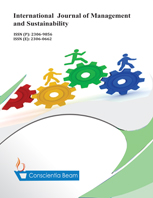Factors affecting the use of accounting and finance technology during the pandemic crisis
DOI:
https://doi.org/10.18488/11.v12i2.3330Abstract
The recent COVID-19 pandemic, which led to lockdowns and new working norms, has influenced business and accounting transactions in significant ways. This phenomenon and its longer-term impacts are still under-researched and remain unexplored in emerging countries, particularly Malaysia. Therefore, the current study intended to determine the actions taken by Malaysian organizations, specifically in their accounting and finance functions, in response to the COVID-19 crisis. Online survey questionnaires were distributed to collect data. The questionnaires comprised several sections, including demographic information of the respondents and factors affecting users’ intentions to use technology for accounting and finance functions in the face of the COVID-19 crisis. This research adopted the Unified Theory of Acceptance and Use of Technology (UTAUT) model as a theoretical basis from which to evaluate the research objectives. The findings showed that only performance expectancy is related to user intention, while other factors, such as effort, attitude, social influence, self-efficacy, and anxiety, display the opposite effect. This empirical study suggests that accounting and finance functions in Malaysia still lag behind in terms of the technology used by employees. In addition, organizations, particularly government departments, are not ready to adopt a fully integrated scientific accounting and finance system.

